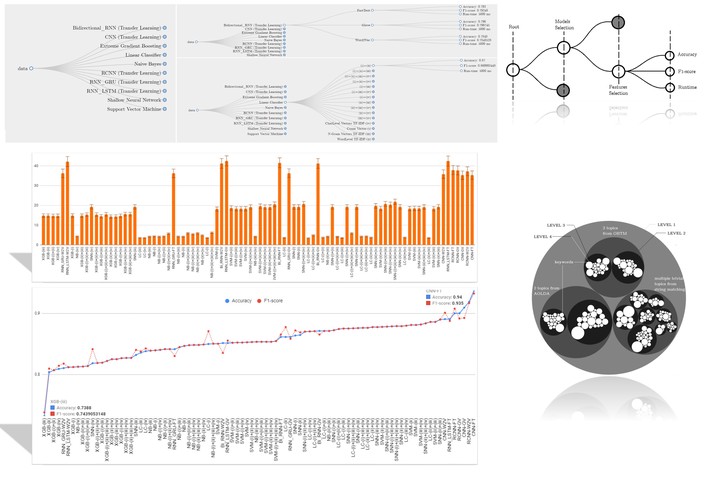ReviewViz - Assisting Developers Perform Empirical Study on Energy Consumption Related Reviews for Mobile Applications
 ReviewViz
ReviewViz
Abstract
Energy inefficiency is a significant issue for the users of mobile applications, and users express concerns through user-feedbacks or app-reviews. That is why developers consistently analyze appreviews to identify the latest energy efficiency-related issues. We empirically studied and compared 90 different machine learning and deep learning models to automatically identify and extract energy consumption specific reviews (with the highest accuracy) from the collection of the user feedback. 1 We report the accuracy, F1-score, and run time of 60 traditional machine-learning models with relevant features and feature-combinations. However, the traditional machine learning algorithms suffer from the lack of labeled training data as developers need to accumulate applicationspecific energy-related labeled reviews (which is both expensive and time consuming). So we also studied 30 Neural Network-based models that use 6 neural network architectures and leverage three pre-trained word embeddings. After classifying the energy-related reviews, we employed different topic modeling algorithms to identify topics causing energy inefficiency for the app. We reported the outcome by comparing the result with the most frequently used rule-based string matching search results. The developed web-browser based interactive visualization tool is a novel framework that makes it easier for the developers to traverse through the extensive result set generated by the text classification and topic modeling algorithms. It also helps developers to quickly comprehend the outcomes of implemented model feature combinations and algorithms used. The dynamic-data structure used for the tool stores the baseline-results of discussed approaches and cumulatively updates itself whenever a new developer performs any of the discussed procedures with a new dataset. This tool also offers developers choices to illustrate the result in a way that is most convenient for user comprehension.